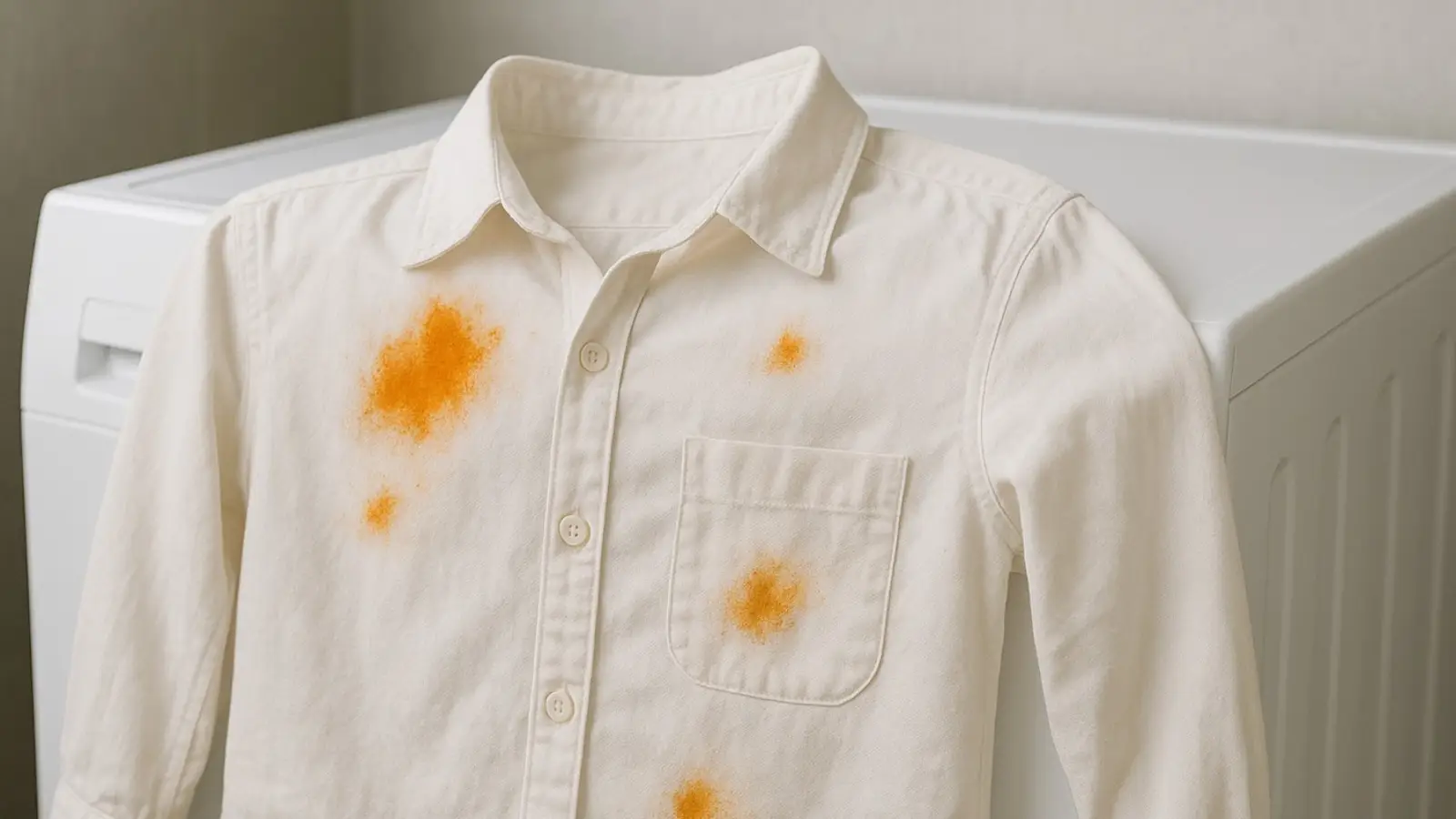https://boda.su/en/posts/id213-color-bleed-stain-rescue-soap-vinegar-and-simple-steps
Color-Bleed Stain Rescue: Soap, Vinegar, and Simple Steps
How to Remove Color-Bleed Stains with Laundry Soap, Vinegar, and Salt
Color-Bleed Stain Rescue: Soap, Vinegar, and Simple Steps
Remove color-bleed stains with a soak, laundry soap, and a vinegar–salt rinse. Clear steps and prevention tips: sorting, care-label temps, suitable detergent.
2025-09-05T10:55:42+03:00
2025-09-05T10:55:42+03:00
2025-09-05T10:55:42+03:00
A single slip in the wash can turn a white blouse into a canvas for bright blotches from a runaway sock. Don’t panic. With a quick, methodical approach, you can bring the fabric back to its original look—and save yourself stress and extra costs. Speed is everything: act before the stain sets and rinse the affected area thoroughly.
Here’s a step-by-step rescue plan:
Don’t let the garment dry. As soon as you notice the stain, soak it in a basin of warm water.
Use household laundry soap. Work it into the discolored areas gently but thoroughly. Its alkaline base helps break down the color marks.
After washing, rinse the item in three liters of cold water. Add one tablespoon of vinegar and a pinch of salt. The vinegar helps set the fabric’s color and lift any remaining stains, while the salt boosts the cleaning effect.
Why this works: the laundry soap contains alkaline components that tackle protein and greasy grime effectively. The vinegar in the rinse acts like a natural whitener and helps restore the fabric’s original shade.
To stop colors from bleeding next time, keep to a few simple rules:
Follow the temperature recommendations on the care label.
Sort light and colored items before every wash.
Check that your household detergents are suitable for the specific material.
Avoid poorly made garments.
With these straightforward steps and habits, it’s entirely possible to rescue a color-run mishap and keep your clothes looking new for longer. Don’t let an accidental stain derail your plans—or your mood.
Color Bleed Removal, Color-Bleed Stains, Laundry Soap, Vinegar Rinse, Salt, Warm Soak, Prevent Color Transfer, Washing Tips, Sort Laundry, Care Label Temperature, Detergent Suitability
2025
articles
How to Remove Color-Bleed Stains with Laundry Soap, Vinegar, and Salt
Remove color-bleed stains with a soak, laundry soap, and a vinegar–salt rinse. Clear steps and prevention tips: sorting, care-label temps, suitable detergent.
Generated by Dall-e
A single slip in the wash can turn a white blouse into a canvas for bright blotches from a runaway sock. Don’t panic. With a quick, methodical approach, you can bring the fabric back to its original look—and save yourself stress and extra costs. Speed is everything: act before the stain sets and rinse the affected area thoroughly.
Here’s a step-by-step rescue plan:
- Don’t let the garment dry. As soon as you notice the stain, soak it in a basin of warm water.
- Use household laundry soap. Work it into the discolored areas gently but thoroughly. Its alkaline base helps break down the color marks.
- After washing, rinse the item in three liters of cold water. Add one tablespoon of vinegar and a pinch of salt. The vinegar helps set the fabric’s color and lift any remaining stains, while the salt boosts the cleaning effect.
Why this works: the laundry soap contains alkaline components that tackle protein and greasy grime effectively. The vinegar in the rinse acts like a natural whitener and helps restore the fabric’s original shade.
To stop colors from bleeding next time, keep to a few simple rules:
- Follow the temperature recommendations on the care label.
- Sort light and colored items before every wash.
- Check that your household detergents are suitable for the specific material.
- Avoid poorly made garments.
With these straightforward steps and habits, it’s entirely possible to rescue a color-run mishap and keep your clothes looking new for longer. Don’t let an accidental stain derail your plans—or your mood.

